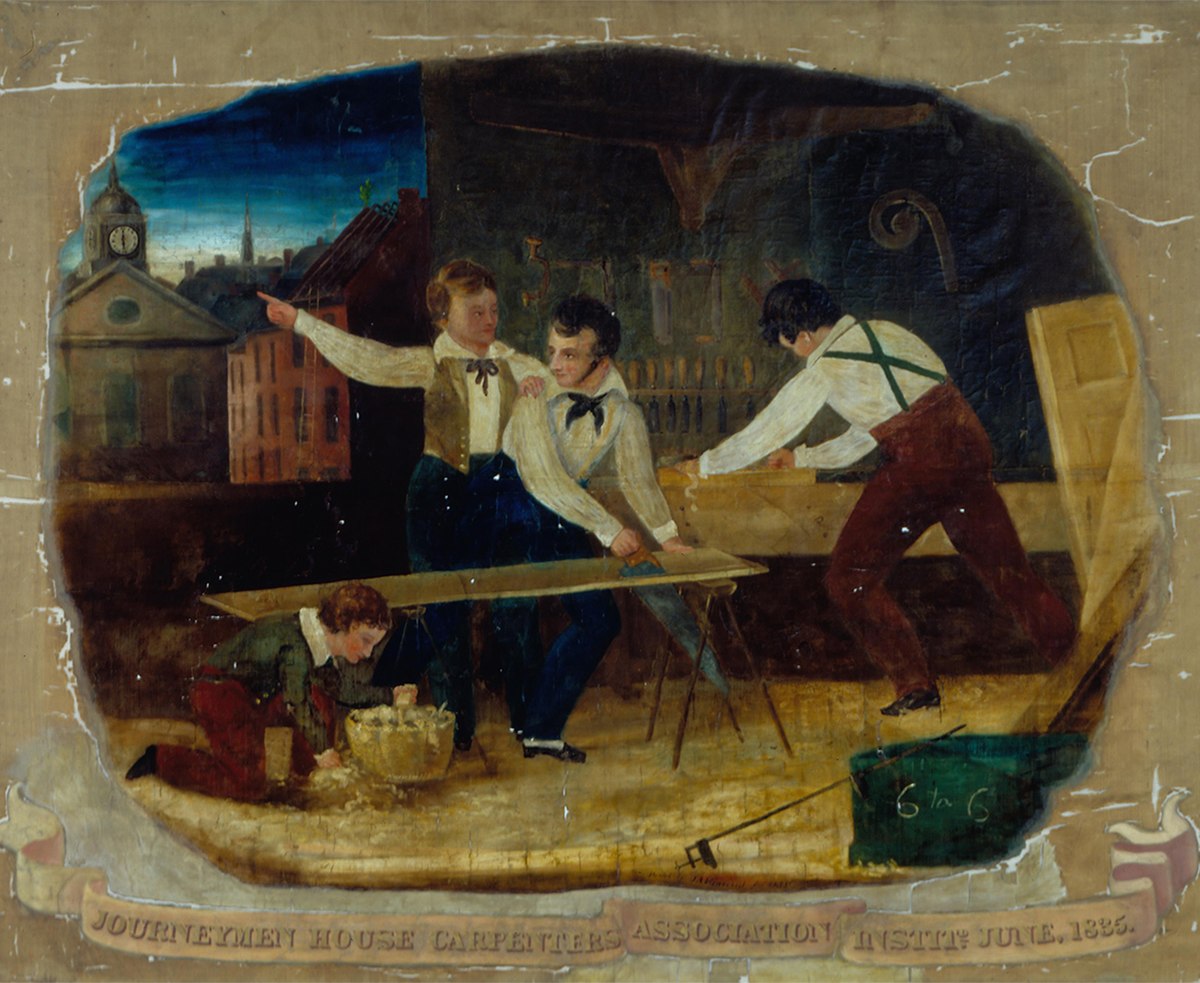Philadelphia General Strike (1835)
Sat Jun 06, 1835

Image: Journeyman House Carpenters' Association of Philadelphia banner promoting the ten-hour day, 1835. A carpenter points to the clock indicating to his co-worker that it is time to quit work. Created by V.A. Van Schoik of the Journeymen House Carpenters' Association of Philadelphia [Wikipedia]
On this day in 1835, the first recorded general strike in North America broke out in Philadelphia when striking Irish dock workers were joined by city workers. A wave of successful strikes followed, standardizing the 10 hour day.
The strike involved around 20,000 workers, demanding a ten-hour workday and increased wages. The strike ended in complete victory for the workers.
Influenced by labor agitation in Boston, the Philadelphia General Strike began with unskilled Irish workers on the Schuylkill River coal wharves going out on strike for a ten-hour day. The dock workers patrolled the picket line with swords, threatening any scab who attempted to unload coal from the 75 vessels waiting in the water.
The coal heavers were soon joined by workers from many other trades, including leather dressers, printers, carpenters, bricklayers, masons, house painters, bakers, and city employees.
On June 6th, a mass meeting of workers, lawyers, doctors, and a few businessmen, was held in the State House courtyard. The meeting unanimously adopted a set of resolutions giving full support to the workers' demand for wage increases and a shorter workday, as well as increased wages for women workers and a boycott of any coal merchant who worked his men more than ten hours.
The strike quickly came to a close after city public works employees joined the labor action. The Philadelphia city government announced that the "hours of labor of the working men employed under the authority of the city corporation would be from 'six to six' during the summers season, allowing one hour for breakfast, and one for dinner."
On June 22nd, three weeks after the coal heavers initially struck, the ten-hour system and an increase in wages for piece-workers was adopted in the city. A wave of successful strikes across the United States followed this victory. By the end of 1835, the ten-hour day had become the standard for most day city laborers.

